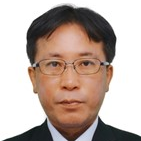Separation Technology for Solid Waste Treatment and Recycling
A special issue of Separations (ISSN 2297-8739). This special issue belongs to the section "Separation Engineering".
Deadline for manuscript submissions: 30 September 2024 | Viewed by 161
Special Issue Editors
Interests: waste treatment; resource recycling; sludge treatment; sludge dewatering; oil recycling from oil sludge; rare metal recycling
Special Issue Information
Dear Colleagues,
With the development of industrialization and the improvement of people's economic standing, more and more wastes are generated in our lives and production process. But almost all solid waste has specific resources, and even contains very important rare resources, such as rare metals, precious metals, and crude oil. At the same time, solid waste treatment can also convert wastes into resources, such as converting organic waste into industrial resources such as methane, acetic acid, and methanol. Therefore, researchers strive to recycle these valuable resources during the solid waste treatment process, with separation technologies becoming the main means of recycling resources from solid waste. Meanwhile, many solid wastes contain toxic substances, such as dioxins, polychlorinated biphenyls, PFOS, heavy metals, etc. Toxic substances in solid waste can be separated using separation technologies to make these solid wastes harmless. There are also some solid wastes which require specific separation techniques in the pre-treatment process, such as sludge dewatering.
For this Special Issue, we are inviting high-quality original articles focusing both on state-of-the-art approaches and newly developed separation technologies for solid waste treatment and recycling. Some areas of interests will cover, but are not limited to:
- Recycling valuable resources from solid waste using separation techniques;
- Recycling resources generated during waste treatment processes via purification;
- Removal of toxic substances from solid waste via separation;
- Pre-treatment of solid waste via separation.
Because harmful liquids and gases in containers are classified as hazardous wastes, papers on the treatment of such liquid and gas hazardous wastes using separation technologies are also welcome.
Dr. Ying Huang
Dr. Kazuyuki Oshita
Guest Editors
Manuscript Submission Information
Manuscripts should be submitted online at www.mdpi.com by registering and logging in to this website. Once you are registered, click here to go to the submission form. Manuscripts can be submitted until the deadline. All submissions that pass pre-check are peer-reviewed. Accepted papers will be published continuously in the journal (as soon as accepted) and will be listed together on the special issue website. Research articles, review articles as well as short communications are invited. For planned papers, a title and short abstract (about 100 words) can be sent to the Editorial Office for announcement on this website.
Submitted manuscripts should not have been published previously, nor be under consideration for publication elsewhere (except conference proceedings papers). All manuscripts are thoroughly refereed through a single-blind peer-review process. A guide for authors and other relevant information for submission of manuscripts is available on the Instructions for Authors page. Separations is an international peer-reviewed open access monthly journal published by MDPI.
Please visit the Instructions for Authors page before submitting a manuscript. The Article Processing Charge (APC) for publication in this open access journal is 2600 CHF (Swiss Francs). Submitted papers should be well formatted and use good English. Authors may use MDPI's English editing service prior to publication or during author revisions.
Keywords
- solid waste
- recycling
- rare metals
- crude oil
- separation techniques






